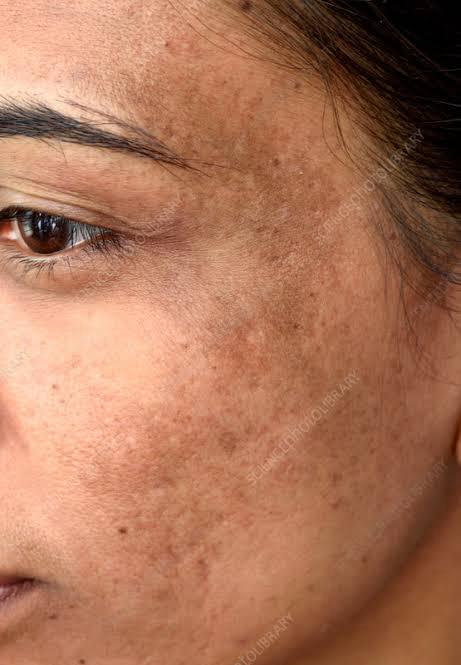Melasma is a common skin condition that leads to patches of uneven skin tone, often appearing as brown, greyish-brown, or tan areas on the face. It most commonly affects the forehead, cheeks, nose, and upper lip, and is more prevalent in individuals with medium to darker skin tones.
Although melasma is not harmful, many people seek advice about how to manage its appearance, particularly when it affects self-confidence.
What Can Contribute to Melasma?
Melasma is a complex condition influenced by multiple factors. These may include:
Sun exposure: Ultraviolet (UV) light can stimulate excess melanin (pigment), which may darken existing uneven patches.
Hormonal influences: Common during pregnancy (sometimes called “the mask of pregnancy”) or when using oral contraceptives or hormone therapy.
Genetics: A family history of melasma may increase susceptibility.
Skin sensitivity: Overuse of certain cosmetic or skincare products may contribute to irritation or imbalance in skin tone.
Certain medications or health conditions: These may increase skin sensitivity to sunlight.
Can Melasma Be Treated?
While melasma can be persistent, its appearance may be managed with appropriate professional care and consistent skincare routines. It’s important to remember that no single solution works for everyone, and results can vary depending on skin type, pigmentation pattern, and individual lifestyle.
What Are My Options?
At Drcosmetist, we offer personalised skincare consultations to assess your skin and recommend a routine that supports a more balanced, even-toned complexion. Depending on your skin type and goals, general recommendations may include:
Broad-spectrum SPF 50+ sunscreen, used daily
Skincare products formulated to support skin renewal and brightness
In-clinic treatments designed to gently improve skin texture and tone
Ongoing lifestyle and skincare guidance to support long-term results.
Skin Type Matters
Darker skin tones (Fitzpatrick types III–VI) require careful and tailored approaches to help minimise the risk of irritation or pigment disruption. That’s why a thorough consultation is always the first step before starting any skin treatment.
📍 Curious about how to support your skin if you're dealing with melasma or uneven pigmentation? Book a consultation with our experienced team at Drcosmetist for tailored skincare advice.



